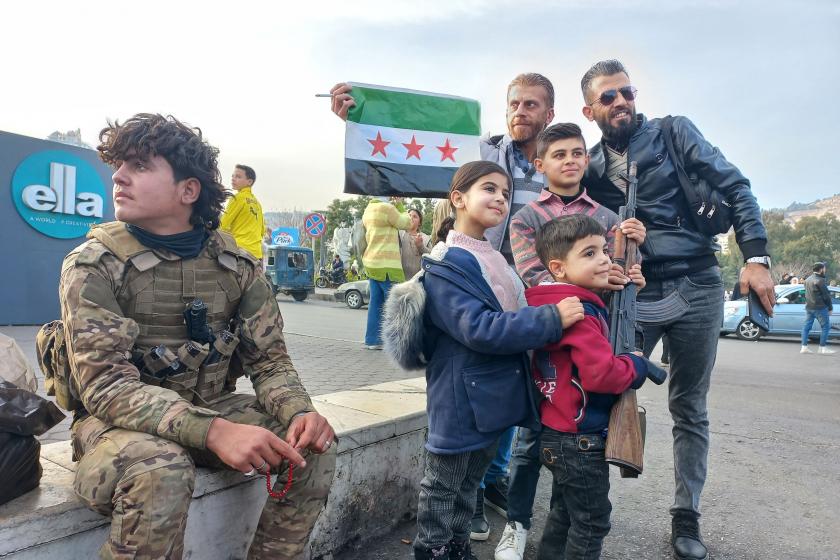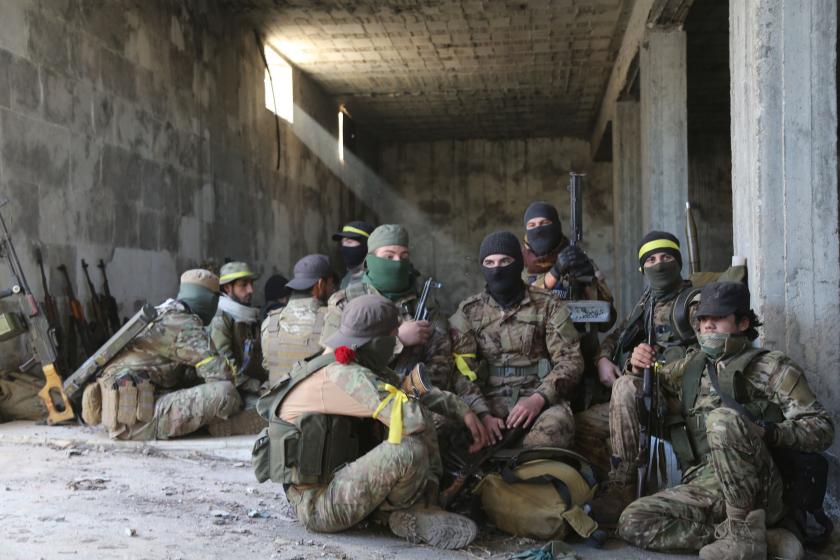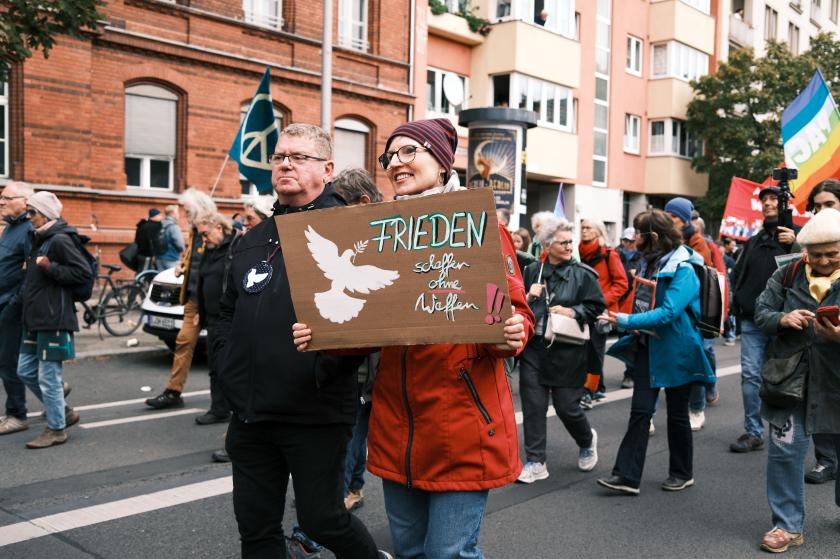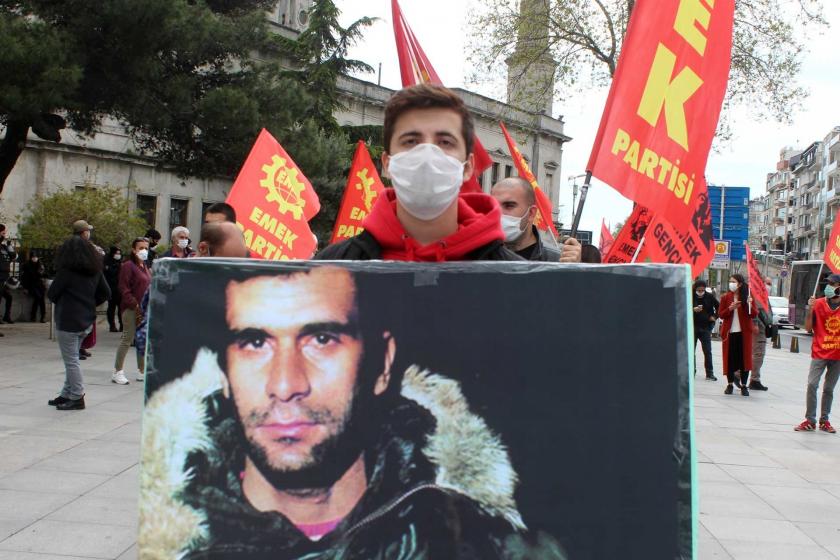There is an economic and leadership crisis in Zimbabwe
We talked with Activist Gerald Mandisodza about the developments in Zimbabwe, which are on the agenda with workers' strikes and protests.
24 January 2019 03:58
We talked with Activist Gerald Mandisodza about the developments in Zimbabwe, which are on the agenda with workers' strikes and protests.
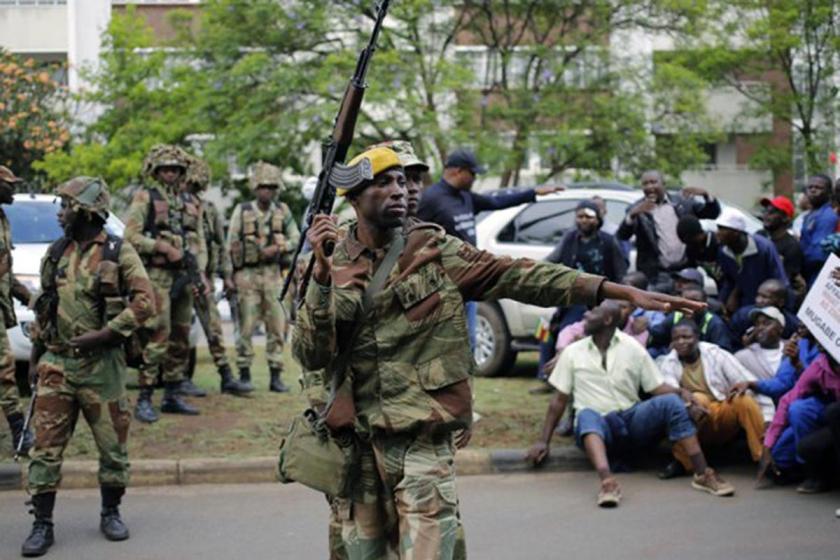
İlyas COŞKUN
The national strike and demonstrations triggered by the three fold increase in petrol prices has resulted in a period of the most intense economic and political tensions seen in Zimbabwe in recent years. Zimbabwe Congress of Trade Unions (ZCTU) declared a three day national strike from midnight on 13 January through to 16 January. Demonstrations took place in support of the strikes during which over 150 people were arrested and at least 8 people died. In order to limit the impact of the strike, the government prevented access to numerous social media websites on 16th January. The government, which was unable to quell the demonstrations, blocked nationwide access to the internet.
On the second day of the strike we spoke to the Zimbabwean activist Gerald Mandisodza, who evaluated these economic and political developments for Evrensel.
ZCTU has called a three-day national strike in the country on 13 January 2019 after the government more than doubled fuel prices. According to the news in the press and statements of the ZCTU, chronic shortages of fuel and foreign exchange, as well as surging inflation have driven Zimbabwe to the brink of economic collapse. What do you think about these criticisms against the government? How is the living condition of people in the country?
Let's be reminded that there is nothing new about the “New dispensation ‘administration, as we all know that the people running this government are still the same people who were with Robert Mugabe for the past 38 years. The current President was one of Mugabe’s top henchmen both at party level and in the government including the current top executive officials in the cabinet were also top lieutenants of the Mugabe regime. Briefly, the coup that took place in November 2017 was mainly grounded on the power politics and conflicts that took place in the party of Zanu-PF1. There is nothing that guaranteed change and progressive governance that was set to benefit and take the nation at large forward. Therefore, if one understands this brief context, I think it will be easy for anyone to really understand this chaos and crisis in Zimbabwe much better.
To answer your first question concerning the criticisms against the government, I will raise a couple of issues that would make such criticism justified in the context of the current crises under the administration of the new president. There is an issue of economic and leadership crisis in Zimbabwe. Here we are talking about a government that has politicians who are out of depth when it comes to governing and managing the crises in the nation. We have had challenges in the health sector and the nurses and doctors have called on the government to address the challenge of the working conditions in hospitals and clinics. The government dragged its feet until the medical doctors and nurses went on strike. The best response that government come up with in such a situation is to either threaten to fire, in some instances about 500+ nurses were fired by the Vice President of Zimbabwe. Recently, junior doctors who went on strike (receiving a salary of $ +/-1700 per month, which was not commensurate with the level of rising inflation) were placed under disciplinary action by the Health services board in collaboration with the Vice President and the ministry of health (citing the ruling from the labour court which declared that the strike was illegal). They chose to ignore and address the key concerns of the workers in the health sector on time, let alone providing the needed drug supplies, which had depleted in government hospitals. The same crisis is seen in other sectors like education too. In all of this, we have a minister of finance who introduces austerity measures and unjust tax regimes, which further causes financial bleeding to the paltry salaries and earnings that the people are getting. Talk of the 2% tax introduced for the purchase of any goods or products exceeding $10. As if that is not enough, there was a new statutory instrument of collecting import tax in hard currency (US dollars) especially for the importation of motor vehicles. Recently there was the hike of fuel prices, which short up to almost three times than the previous prices. The fuel price in Zimbabwe has broken the record to be the highest price that Zimbabweans have to pay compared to prices charged in the region of SADC if not the whole continent of Africa.
Another issue, which brings justification to these criticisms, is the challenge of political legitimacy, continued corruption, and empty promises by the government. After the disputed and controversial July 2018 elections, contestations arose concerning the results of the elections and this resulted in protests, which ensued on the 1st of August, which saw six (6) unarmed civilian protesters being killed by the military and left several civilians injured and others arrested by the police. A commission of inquiry was established and people who had hoped to get justice served were let down especially the affected families and the nation at large. The commission was a litmus test on the coup government and as you know, nothing has happened up to now. On the other hand, you have vendors who form part of the informal sector, being harassed, chased out of towns and their selling points and some experiencing arbitrary arrests. This shows that Zimbabweans are tired of lies and promises from an administration that they hoped was going to bring transformation to the nation that has been severely wounded for the past 38 years under the rule of Robert Mugabe.
In terms of the living conditions of the common people, the situation is worse than any person could ever imagine. We have become a nation that is surviving on less than $1/ day now and the health system is down, people in communities dying of diseases like cholera (October/November 2018) which has claimed several lives of people in various parts of the country. Medical institutions are in short supply if equipment needed to treat the citizens when they need medical attention and some are dying of sickness that can be easily treated if the supplies are there.
On the other hand, we have a government that has misplaced its priorities, splashing millions of dollars on motor vehicles for traditional chiefs and government officials yet the health system and key service delivery systems are down.
Therefore, what we have here is people who have the hope of a better Zimbabwe deferred if not stolen from their hands. We have a coup government, which appeared to be better than Mugabe was, yet they are showing to be no different from their predecessor. We have the worsening economic and financial crisis coupled with inflation and price hikes and yet the salaries of the workers are reduced to nothing in terms of cushioning the workers against the hardships of the economy. We have the crisis of political legitimacy as well as deterioration of people’s livelihoods. All these are issues and factors to which one would be justified to criticising the government at all levels and having the right to exercise their constitutional right to protest and call the government to be accountable and responsive to the crises that Zimbabwe continues to face.
According to the news, there have been seen clashes between police and protesters in many cities. What is the current situation in the country in terms of the success of the national strike?
As we speak now, the situation in the country is tense and highly volatile. The national strike or #Shutdown, in my view, has been very effective, as it has send a strong message to the government. Towards the marked day of the strike, all sectors in the nation from production to tertiary, many companies and even government institutions were releasing press statements and memos citing that they cannot continue anymore as they continue to be negatively affected by the worsening economic crisis and hiking of the prices of goods and services. I have come across economic article analysis which is claiming that the #shutdown has cost the country almost $100 million per day (though this is debatable). Assuming that this may be true, this means that in the past 3 days, and then the nation might have made production losses of close to $300 million. This is huge.
In my view, the effectiveness of the national strike is seen in the unity of purpose where both labour movements, civil society and the general citizens had to agree (beyond debate and contestation) to embark on a 3 day non-violent and peaceful stay away. Sector by sector had to throw down their tools and join the strike, and here we are talking of both the public sector and privates sector too. However, in some areas of the capital cities and big towns, the peaceful protest marches began peacefully until violence erupted as protesters clashed with the military and police officials, order to quell the demonstrations by the vice president, the ministry of defence and home affairs. This is what the Zanu-PF government knows best, to unleash forces that bring confusion, hijack the workers and peoples protest so that they get justification of unleashing security forces to shoot, kill and beat up the innocent poor workers and citizens who are calling for economic, political and social justice in Zimbabwe. As we speak now, reports are emerging, claiming that there was a “third force” which came through and managed to hijack and turn the peaceful demonstrations into violent ones, by looting shops, setting properties on fire and these people have been unmasked and found to be the Zanu-PF youths. The purpose of this force is to terrorise the people yet they will be disguised as army or police officer as they will be wearing the police and army uniforms.
What are the demands of unions from the government? And what is your opinion on these demands?
Demands from the union were and are still clear, workers are calling on the government to do away with the newly introduced unjust tax regimes, pay the workers in US dollars (USD), review the salaries of all workers in the public sector and to let the market determine the exchange rates instead of the government pegging the rates at par (1:1). What sparked the workers and the ordinary citizens to take it to the streets was the fuel price hikes, which outraged even the citizens who operate in the informal sector too. In sectors like the health sector, the doctors are demanding that the government to adequately supply enough equipment and medication to public hospitals and clinics since the institutions have been running out of supplies due to lack foreign currency which is need to procure medical supplies. These are some of the major demands among others, as they would vary from sector to sector.
The list by the unions and other non-unionised workers is a justifiable list in the current context where the economy continues to spiral down, hitting rock bottom. Also, the nation has faced the worst ever cash shortages in the economic history of Zimbabwe and as such all workers both in the informal and formal sector had to bear the brunt of standing in long bank queues to get the little cash that banks would have managed to have.
What is the position of opposition parties during the national strike? Do they provide support for the unions or not?
As you know, the main opposition party the MDC-Alliance (an alliance of opposition parties that includes both big and major ones and small parties) has been calling the government to address the economic and political crisis in Zimbabwe. They have been calling the ministry of finance to address the economic crisis as a matter of urgency before it becomes a social and political crisis. Now during the national strike, the opposition could not publicly support the strike, as there were allegations from the government that the strike is politically motivated. The government of Zimbabwe had concluded that the strike is motivated by the opposition and is still being labelled as the instigators of strikes and violence with the motive of making Zimbabwe ungovernable. In such a context, the opposition would give its weight by directly appealing to the government and responsible authorities in the government to address the concerns of the workers. If they give direct support to the unions and workers, considering the political volatility of the nation, the grievances of the workers would then be discredited, as they will be labelled to be anti-government motivated by the opposition, which is alleged as protagonists of “regime change agenda.”
Do you think the government has an effective action plan for the current crisis in the country?
Personally, I think that the government has become clueless now. The crisis is not just what we are seeing now with protests but it’s a crisis where the government of Zimbabwe has taken a route of failing to be all inclusive and consulting its citizens in most of the economic policies which affect people. They may come up with a good economic policy but if they do not consult and communicate to the citizens adequately, the action plan will be not effective because the citizens will be unaware of what such action plans will benefit or negatively affect them.
As you can see, since the toppling down of Mugabe from power, the new administration has been globetrotting with nothing-fruitful coming from the international visits. There has been serious contradictions and inconsistency in some of the economic policies and with the sense of “we will prove them wrong,” yet they are bypassing the rightful constituencies to which they must be consulting, being accountable to and transparent as well.
Gerald Mandisodza is a Zimbabwean political activist. He received his MA in Labour Policies and Globalisation from the Global Labour University. He is currently a PHD student in the Public and Development Management at the Witwatersrand University.
